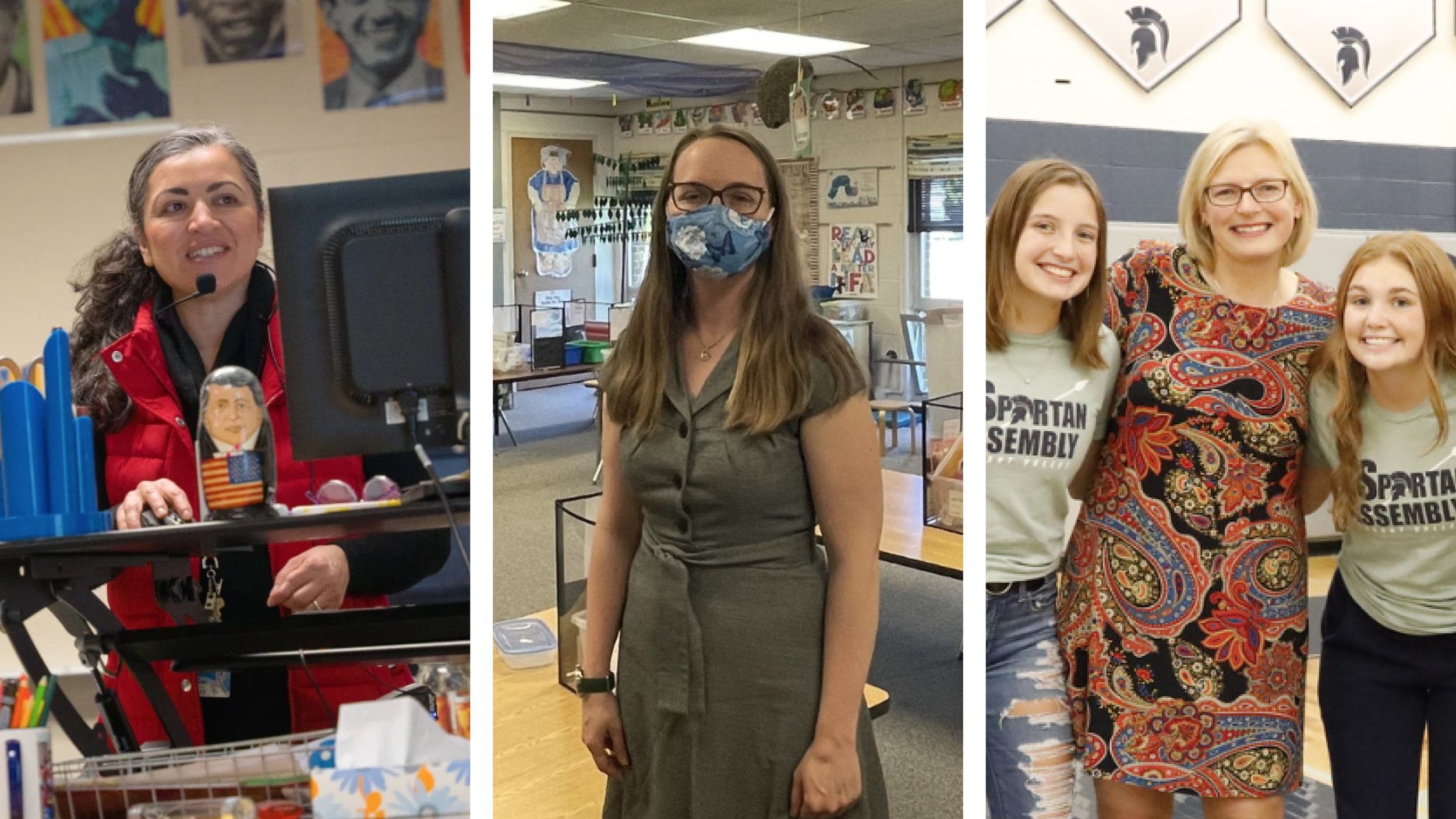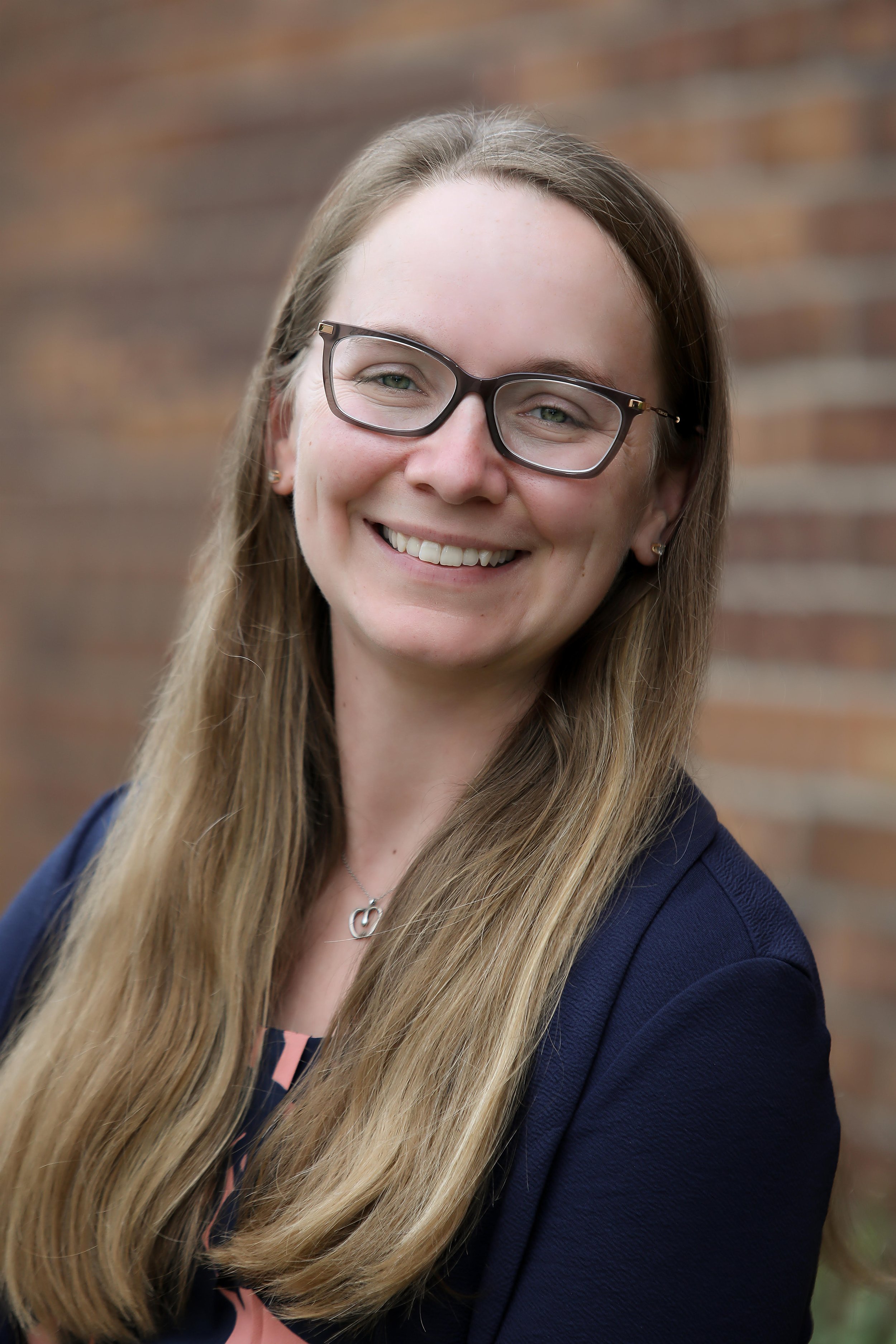How to Succeed at Teaching with a Little Help from Your Friends
Teachers of the Year are much more than people who are excellent at their jobs. They are also vast reserves of accumulated wisdom on how to overcome challenges and succeed in a demanding, and deeply rewarding, career.
As the 2021-2022 school year came to a close, we spoke with three Teachers of the Year:
Left to right: Natalia Benjamin, Leah Porter, Sara Russell
Natalia Benjamin,
Minnesota
Natalia has been teaching ethnic studies and in the English Learner (EL) program for seven years at the high school level.
Leah Porter,
Michigan
Leah spent 15 years teaching kindergarten before moving up to the third grade this past year.
Sara Russell,
Iowa
Sara just finished her 20th year of teaching high school, first as a Level 1 special education teacher for three years and then as a social studies teacher.
Their rich insights have been condensed into a field guide that we are calling How to Succeed in Teaching with a Little Help from Your Friends.
What were your biggest challenges during your first few years of teaching?
“I had taught languages prior to teaching in a public school setting, but I was a little nervous teaching high schoolers and wondered if my classroom management would be OK,” Natalia shared. “There is often not a set curriculum when teaching multilingual learners, so I had to create materials and a curriculum from scratch. That was a challenge.”
Natalia with students during her Ethnic Studies class. Credit: Joe Ahlquist / Post Bulletin
Classroom management was a big concern for Leah, as well. She said, “During my first year, I learned it was really important to focus on classroom management and not getting bogged down trying to do everything well. I wish I had relied on my fellow kindergarten teachers more.”
Sara’s first year experience was daunting but in a different way: Though she had trained as a social studies teacher, she became emergency-certified to teach special education in a rural school district of Iowa. “I suffered from what we would call imposter syndrome today,” she recalled. “During my first month of teaching, I drove home crying nearly every day. I felt ineffective, like I was in over my head. Without the support of the social worker and psychologist in my Area Education Agency, I would not have been successful.”
What went better than you expected?
“When it came to classroom management, I learned that building relationships was super important,” Natalia said. “Once my students trusted me, they knew I would do what was needed to support their success. That allowed me to be more intentional about creating activities that would build community in the classroom. As I learned, community-building is foundational to tackling harder tasks later on.”
Meanwhile, Leah had the support of incredible mentor-teachers. “I walked into an all-star group of primary teachers,” Leah remarked. “They worked collaboratively and really supported me. One teacher was an official mentor supplied by the school district, and I also had the ability to meet with other first year teachers across the district. I learned so much from everyone.”
Despite a brutal first month of teaching, Sara adjusted faster than she had anticipated. “That outside support from my colleagues in the Area Education Agency and my school was key,” she recalled. “Gaining confidence that I was having a positive impact and knowing that my students and their parents trusted me happened quickly - faster than I thought.”
What are three things you know now that you wish you had known as a new teacher?
Natalia checks in with a student during her Ethnic Studies class. Credit: Jaida Grey Eagle | Sahan Journal
Natalia:
Put students first. Do that, and the curriculum will fall into place and meet the needs of the students.
Embed identity work with literacy work. You can help students build positive self-identities through projects and stories; it doesn’t have to be an either/or choice.
Fold criticality into the work so students become thinkers and problem solvers.
Credit: Leah Porter
Leah:
It is OK to prioritize yourself. You’re never going to finish all the work, and you need balance in your life.
Rely on your fellow subject area or grade level teachers. This profession is all about collegiality and finding the strengths in each other.
You cannot do it all. You cannot meet every standard to the fullest, but you can establish a classroom community and help kids become learners.
Sara’s students celebrate her Teacher of the Year announcement with a selfie. Credit: Sara Russell
Sara:
You’re going to stumble a lot, and that’s OK. You’re going to be a better teacher because of the stumbles.
You are allowed to feel, so give yourself space to be emotional and shed a few tears.
This too shall pass. Even when you have a challenging group of students or you’re trying to teach during a global pandemic, remember that this is temporary.
What advice do you have for new teachers who are struggling?
“Build a network of support,” Natalia said. “Education is not achieved by a single teacher. Who are your support people at school and outside of school? You will find knowledge, empathy, and solutions to challenges from your network.”
“Ultimately what you give kids each day is enough for that day,” Leah offered. “Regardless of the things that are hard, focus on the kids in front of you.”
“This is difficult to do when you’re struggling, but ask for help,” Sara said. “There’s a good chance other new teachers in your building are struggling, too. We all need support - new and veteran teachers - so find your group.”





